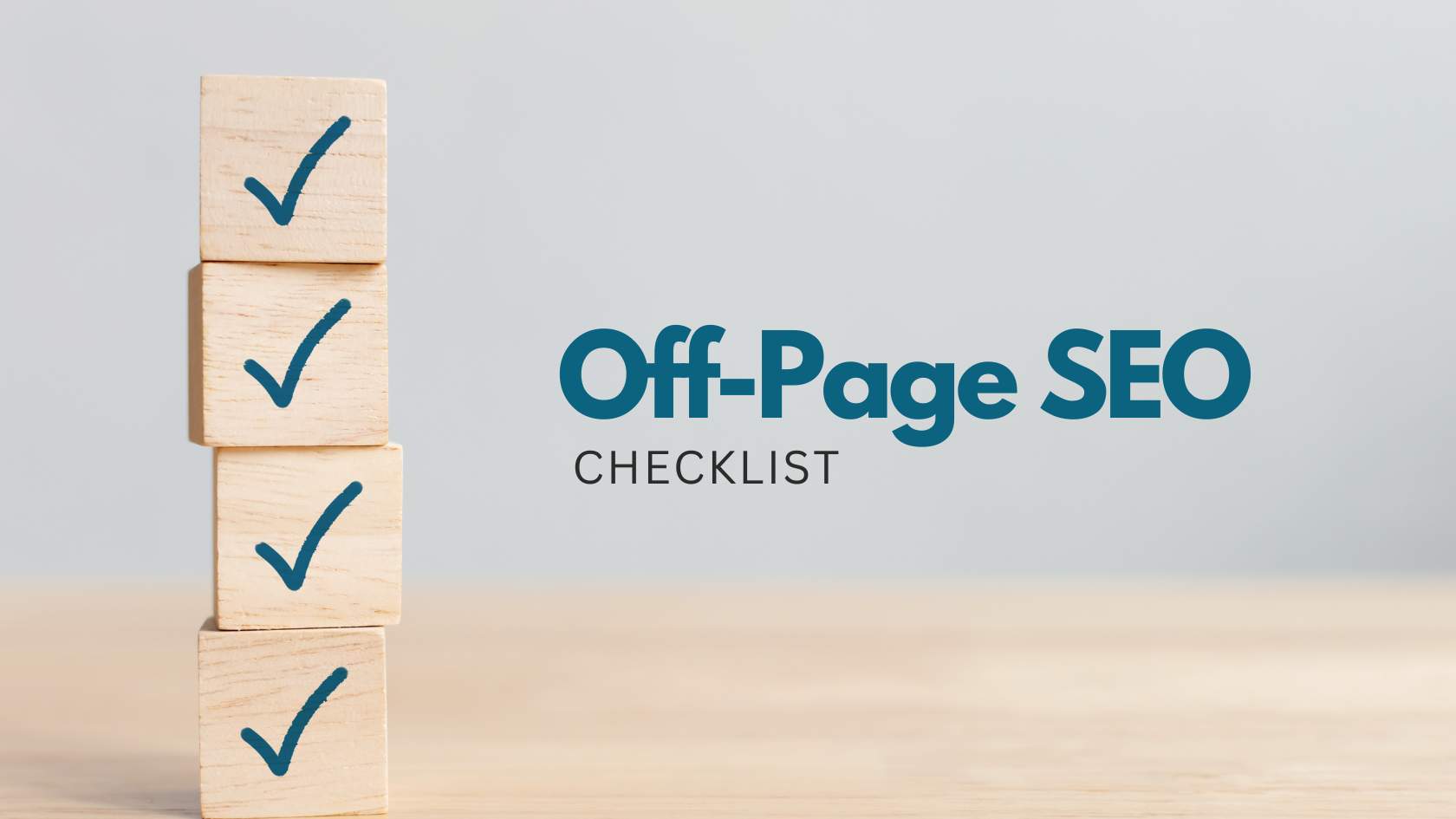What if Google ranked websites based only on what others say about them? In many ways, it does! That’s why an Off-page SEO checklist is so important. On-page SEO is about improving your website’s content, but Off-page SEO is about building your site’s reputation through things like backlinks, brand mentions, and social media activity.
Table of Contents
Search engines use these external signals to measure how trustworthy, authoritative, and relevant your site is. Even the best content might not rank well without a good off-page SEO plan.
This guide explains the best off-page SEO methods, from building backlinks to using social media. These strategies will help your site gain authority and rank higher. Follow this checklist to improve your search rankings and get more organic traffic to your site!
What is Off-Page SEO?
Search engines don’t just look at what’s on a website—they also look at what’s happening outside of it. This is what off-page SEO involves.
Off-page SEO includes actions you take outside your website to improve its reputation and authority. The most important part is backlinks. When other websites link to yours, search engines see this as a sign that your content is valuable. The more high-quality backlinks you have, the better your chances of ranking higher.
But off-page SEO isn’t just about backlinks. It also includes things like social media shares, brand mentions, guest blogging, and working with influencers. These activities help search engines trust your site more.
A strong off-page SEO strategy makes your website more visible, brings in more organic traffic, and helps you rank higher in search results.
Also read: The Difference Between On-Page and Off-Page SEO
Why is Off-page SEO important?
Imagine you own the best café in town, but only your regular customers know about it. That’s what a website without off-page SEO is like: great content, but no one knows it exists. Off-page SEO is how you get people to talk about your site, recommend it, and give it credibility.
Search engines see backlinks, brand mentions, and social media activity as signs that your site is trustworthy. This helps your site gain better rankings in search results. Without off-page SEO, even the best on-page content might not rank well.
A strong off-page SEO strategy includes getting high-quality backlinks, using social media, and working with influencers. These actions help build trust and authority. In 2025, with so much competition, off-page SEO is not optional—it’s a must if you want to improve your rankings and get more organic traffic to your site.
Off-page SEO Checklist
Off-page SEO plays a crucial role in establishing your website’s authority, credibility, and visibility across search engines. Unlike on-page SEO, which focuses on optimizing your website’s internal elements, off-page SEO involves external strategies to improve your search rankings.
Below is a structured off-page SEO checklist with explanations and practical tips to help you enhance your website’s authority and organic performance.
1. Evaluate and Maintain a Healthy Backlink Profile
Backlinks (incoming links from other websites) significantly influence your website’s authority and rankings. However, not all backlinks are beneficial—low-quality, spammy links can harm your SEO instead of helping it.
How to Evaluate Your Backlink Profile:
- Use tools like Google Search Console, Ahrefs, or SEMrush to monitor your backlinks.
- Look for spammy, irrelevant, or toxic backlinks that may negatively impact your rankings.
- Identify links from private blog networks (PBNs) or websites with thin content.
How to Maintain a Clean Backlink Profile:
- Reach out to webmasters to request link removal from low-quality sources.
- If removal is not possible, use Google’s Disavow Tool to tell search engines to ignore harmful backlinks.
- Continuously track your backlinks and perform regular audits to ensure your website maintains a strong authority.
Also read: How to do an SEO Audit – Comprehensive Guide to Boosting Your Website’s Performance
📌 Tip: Create a monthly backlink audit schedule to keep your link profile clean.
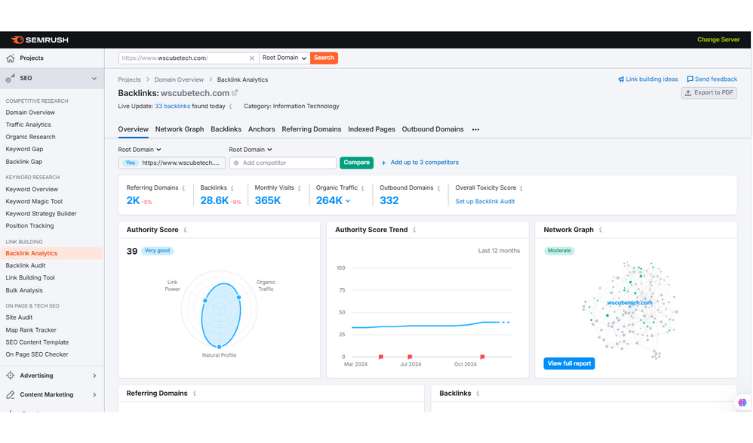
2. Research Your Competitors’ Backlink Sources
Understanding where your competitors earn their backlinks provides valuable insights into link-building opportunities. If high-authority websites link to them, you can strategize how to earn links from the same sources.
Steps to Analyze Competitor Backlinks:
- Use Ahrefs’ Site Explorer, Moz Link Explorer, or SEMrush’s Backlink Analytics to see where competitors get their backlinks.
- Identify high-authority domains that link to multiple competitors.
- Check the type of content earning these backlinks—guest posts, resource pages, or PR mentions.
How to Use This Data for Link Building:
- Create better content than what competitors offer and pitch it to these authoritative sites.
- Offer guest posts on blogs that link to your competitors.
- Find broken links on those sites and suggest your content as a replacement.
📌 Tip: Look for backlinks pointing to outdated content and pitch an updated, high-value alternative.
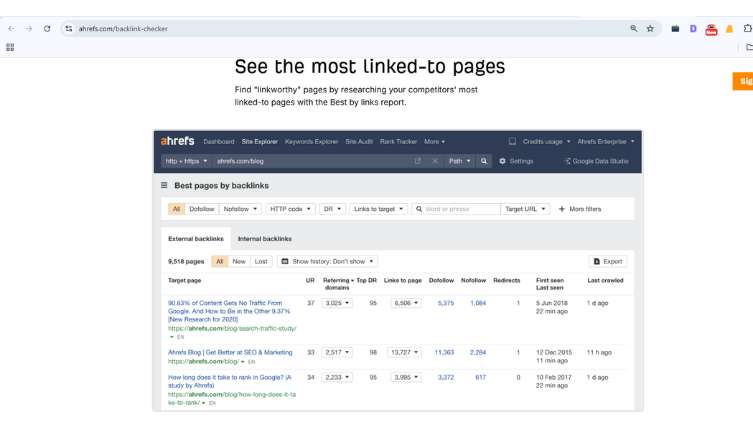
3. Focus on Earning High-Quality Backlinks
Search engines give more importance to the quality of backlinks rather than their quantity. A single backlink from a high-authority website can be more beneficial than dozens from low-quality sites.
How to Earn High-Quality Backlinks:
- Guest posting: Contribute valuable articles to authoritative websites in your industry.
- HARO (Help a Reporter Out): Provide expert insights to journalists in exchange for a backlink.
- Digital PR campaigns: Get featured in online news publications through press releases and expert contributions.
Qualities of a High-Quality Backlink:
- Comes from an authoritative domain (check using Moz’s Domain Authority or Ahrefs’ DR).
- Is contextually relevant to your niche.
- Comes from a website with high organic traffic and a clean backlink profile.
📌 Tip: Avoid link exchanges, paid backlinks, or links from spammy directories—they can lead to penalties.

4. Strengthen Your Local SEO Efforts
For businesses targeting a specific location, local SEO is essential for attracting customers.
Key Local SEO Actions:
- Optimize Google My Business (GMB): Keep your business name, address, and phone number (NAP) updated.
- Get listed on directories: Yelp, Bing Places, Apple Maps, and Yellow Pages.
- Encourage customer reviews: More positive reviews enhance credibility and local rankings.
Why Local SEO Matters:
- Boosts your likelihood of showing up in Google’s Local Pack.
- Helps mobile users find your business when searching locally.
- Strengthens location-based backlinks from reputable directories.
📌 Tip: Encourage happy customers to leave reviews by offering incentives like discounts or exclusive offers.
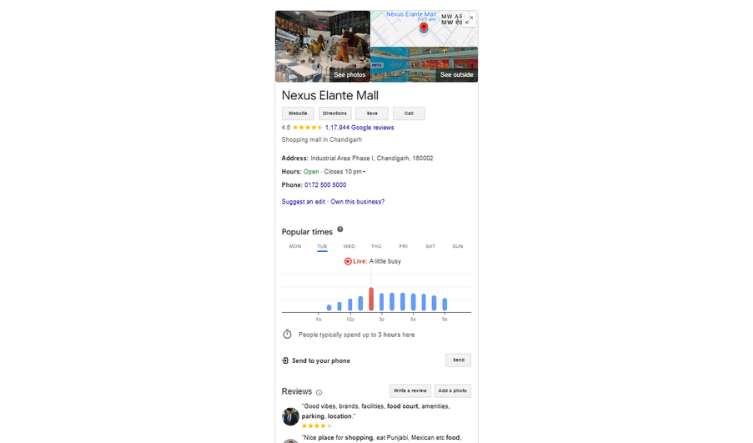
5. Gain Brand Mentions from Trusted Sources
Even if a website doesn’t link to you, a brand mention still strengthens your credibility.
Ways to Earn Brand Mentions:
- Engage with journalists and industry influencers through HARO or Twitter.
- Get featured in blog posts, news articles, and social media discussions.
- Use tools like Google Alerts or Mention.com to track unlinked brand mentions.
Turning Mentions into Backlinks:
- Reach out to websites that mention your brand but haven’t linked to your site—politely request a backlink.

6. Boost Engagement by Sharing Content on Social Media
Social media doesn’t directly affect rankings, but it helps increase content reach and website traffic.
Effective Social Media Strategies for SEO:
- Share blogs, infographics, and videos on LinkedIn, Twitter, and Facebook.
- Encourage discussions by engaging with users in comments.
- Use social listening tools to track brand mentions and industry trends.
How Social Media Supports SEO:
- Generates referral traffic that can lead to natural backlinks.
- Increases brand recognition and authority.
- Drives engagement signals that search engines may factor into rankings.

7. Be Active in Online Communities and Forums
Engaging in relevant forums, Q&A platforms, and online communities helps establish your expertise and drive targeted traffic to your website.
How to Leverage Online Communities for SEO:
- Participate in discussions related to your niche on platforms like Reddit, Quora, Stack Exchange, and niche-specific forums.
- Provide value by answering questions thoughtfully rather than just dropping links.
- Link strategically—include links to your content only when it genuinely adds value to the discussion.
Benefits of Community Engagement:
- Drives highly targeted traffic—people actively searching for solutions are more likely to convert.
- Improves brand visibility within relevant industry circles.
- Increases chances of earning backlinks when users reference your insights in their content.
📌 Tip: Avoid being overly promotional. Instead, focus on educating and adding value to establish authority.
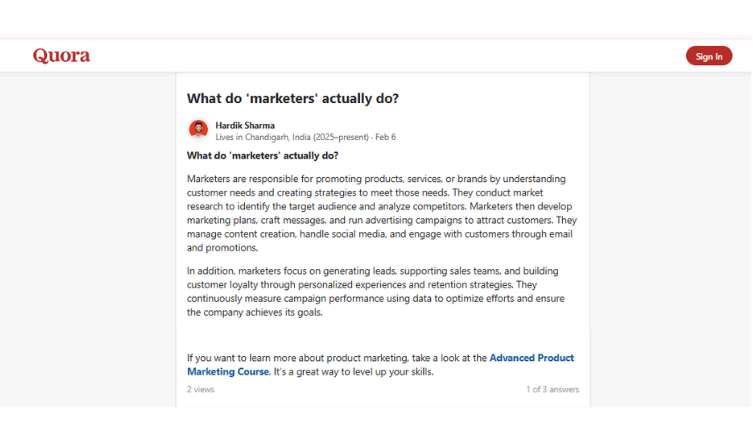
Also read: Types of SEO (Search Engine Optimization)
8. Strengthen Internal Linking for Better Navigation
While internal linking is considered an on-page SEO tactic, it indirectly impacts off-page SEO by improving user experience, engagement, and link equity distribution.
Why Internal Linking Matters for SEO:
- Helps search engines quickly and effectively crawl and index your website.
- Distributes link equity (ranking power) from high-authority pages to newer pages.
- Enhances user experience by guiding visitors to relevant content, reducing bounce rates.
Best Practices for Internal Linking:
- Use descriptive anchor text (avoid generic text like “click here”).
- Link to important pages—prioritize internal links to cornerstone content.
- Maintain a logical structure—avoid excessive links on a single page.
📌 Tip: Use tools like Ahrefs Site Audit or Screaming Frog to identify orphan pages (pages without internal links) and ensure every page is interconnected.
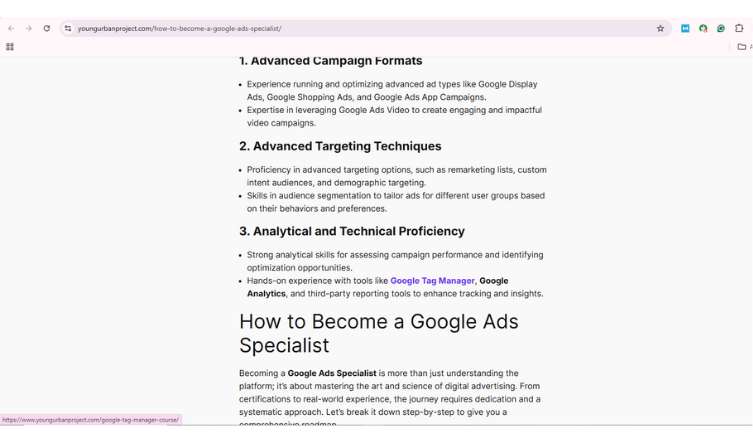
9. Identify and Fix Broken Links (404 Errors)
Broken links negatively impact SEO, user experience, and credibility. If a page returns a 404 error, it frustrates users and wastes link equity.
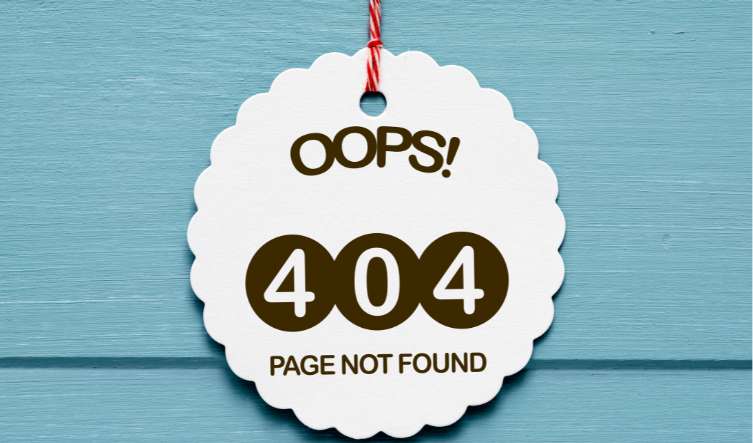
How to Find and Fix Broken Links:
- Take advantage of tools like Google Search Console, Screaming Frog, or Ahrefs to locate broken links.
- Redirect (301) broken pages to a relevant working page.
- Update internal links pointing to non-existent pages.
- Replace outdated external links with current, high-quality sources.
Why Fixing Broken Links is Crucial:
- Improves user experience, reducing frustration.
- Preserves link equity—ensures valuable backlinks continue to benefit your site.
- Helps maintain site health, which search engines consider when ranking websites.
📌 Tip: Conduct a quarterly broken link audit to keep your site error-free.
Also read: All Advantages and Disadvantages of SEO
10. Gain Exposure Through Guest Blogging
Guest blogging remains one of the most effective off-page SEO strategies for building authority, earning backlinks, and increasing traffic.
How to Use Guest Blogging for SEO:
- Find authoritative blogs in your niche that accept guest contributions.
- Pitch unique, high-quality content—avoid topics that have been covered extensively.
- Include natural backlinks to your site within the content (without over-optimizing).
- Engage with the audience by responding to comments on your guest posts.
Why Guest Blogging Works:
- Strengthens your standing as a knowledgeable figure in your industry.
- Helps build relationships with influential sites.
- Provides high-authority backlinks that boost rankings.
📌 Tip: Avoid spammy guest post networks—Google penalizes sites that engage in low-quality, link-building-only guest blogging.
11. Use Press Releases to Gain Backlinks
A well-written press release can generate media coverage and high-quality backlinks from news websites.
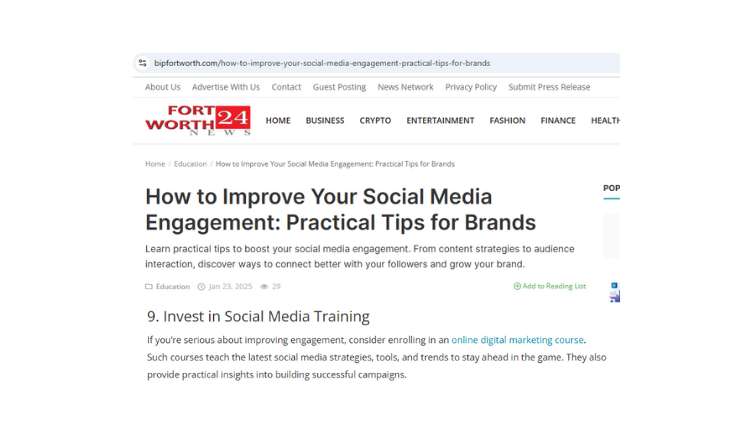
How to Create an Effective Press Release for SEO:
- Write a newsworthy announcement (e.g., product launch, company milestone, industry insights).
- Use distribution platforms like PR Newswire, Business Wire, or GlobeNewswire to reach journalists.
- Ensure the press release includes backlinks to key landing pages on your site.
- Reach out directly to industry journalists and bloggers to increase chances of coverage.
Benefits of Press Releases for SEO:
- Earns backlinks from trusted news sources.
- Improves brand recognition and credibility.
- Increases organic traffic from media mentions.
📌 Tip: Craft a compelling headline and lead paragraph—journalists receive numerous press releases daily, so yours needs to stand out.
12. Optimize for Voice Search and Featured Snippets
With the rise of voice assistants (Google Assistant, Siri, Alexa) and featured snippets, optimizing for voice search improves your off-page visibility.

How to Optimize for Voice Search:
- Use conversational language—voice queries are often long-tail and question-based.
- Target featured snippets by answering common industry questions concisely.
- Structure content with bullet points and short paragraphs to improve readability.
- Include FAQ sections on your blog posts to match voice search queries.
Why Voice Search Optimization Matters:
- Approximately 20.5% of the world population uses voice search.
- Google prioritizes quick, direct answers for voice queries.
- Improves local SEO—many voice searches are location-based (e.g., “best coffee shop near me”).
📌 Tip: Use tools like AnswerThePublic to find commonly asked voice search queries related to your niche.
Conclusion
Off-page SEO is about making your website trusted and popular by using strategies outside your site. Following an off-page SEO checklist helps your site become more visible, rank higher in search results, and attract more visitors.
Things like getting backlinks, using social media, working with influencers, and writing guest posts are key parts of off-page SEO. These efforts are very important for your overall SEO success.
A good off-page SEO plan in 2025 will make your website more trusted, improve its rankings, and make your brand stronger online. By working on off-page SEO regularly, you build long-term trust and grow your site in a competitive online world.
FAQs: Off-Page SEO Checklist
1. What is off-page SEO, and how does it differ from on-page SEO?
Off-page SEO refers to optimization activities conducted outside your website to improve its authority and ranking in search engine results. This includes strategies like backlink building, social media engagement, and influencer outreach. In contrast, on-page SEO involves optimizing elements within your website, such as content quality, internal linking, and page speed, to enhance search engine visibility.
2. Why are backlinks important in off-page SEO?
Backlinks act as endorsements from other websites, signaling to search engines that your site provides valuable content. High-quality backlinks from reputable and relevant websites can significantly boost your site’s authority and improve its rankings in search results.
3. What are effective strategies for building high-quality backlinks?
Effective strategies for acquiring high-quality backlinks include:
1. Guest Posting: Contributing valuable content to reputable sites in your niche, which can result in backlinks to your site.
2. Broken Link Reclamation: Identifying broken external links on target websites and offering your relevant content as an alternative.
3. Creating Linkable Assets: Developing valuable content like research reports, infographics, tools, or guides that naturally attract backlinks.
4. Unlinked Brand Mentions: Locating mentions of your brand that don’t include a link and requesting one.
5. Expert Contributions: Sharing your expertise through interviews, podcasts, or answering media requests.
4. How does social media engagement contribute to off-page SEO?
Engaging with your audience on social media platforms can increase your site’s visibility and encourage users to share your content, leading to more brand mentions and potential backlinks. Active participation on social media also signals to search engines that your brand is credible and relevant.
5. What role does influencer outreach play in off-page SEO?
Partnering with online creators or influencers in your niche can introduce your product or service to new audiences, leading to increased brand searches, mentions, and backlinks. It’s essential to collaborate with influencers whose audience aligns with your target market and whose content reflects your brand’s values and goals.

